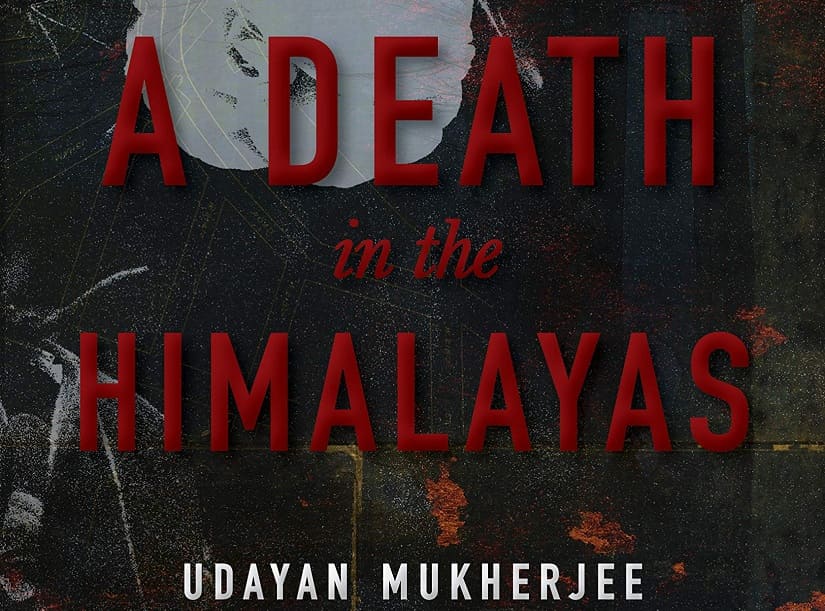More than a decade ago the Sweden set crime series Forbrydelsen (The Killing) became such a global sensation that it started not just the trend of Nordic noir and crime shows, but also one of exploring the link between hard politics and murder. In the series, the murder of a teenage girl threatens to defang a political campaign or malign it grievously. But much of the theatrics was for misdirection. It still, however, made for a potent mix. Local politics, has now become an arc of its own in murder mysteries that have evolved enough to step outside the bungalow or four-dimensional love stories. Former journalist and television anchor Udayan Mukherjee’s second novel, A Death in the Himalayas, ably flexes its farms by juggling local and racial politics in the fictional hill village of Birtola. [caption id=“attachment_7603871” align=“alignnone” width=“825”]  The cover for Udayan Mukherjee’s A Death in the Himalayas.[/caption] Mukherjee has taken quite the right turn in his short yet evidently prolific output since his first novel came out a year ago. Here he introduces Neville Wadia, a former detective who has retired to the hills with his wife Shehnaz. Birtola is a quaint village in the hills, which makes it an attraction to people from outside, including beyond the borders of India. Claire Watson, a Britain born environmentalist slash writer slash activist has made Birtola her home and begun to profess her liberality to the locals as a way of life, stepping as you would expect in India, on a fair number of toes on the way. After Watson is found dead in the woods one morning, Wadia, though unwillingly but naturally has to lead the investigation the police is seemingly untrained to handle – this being the hills and the death being that of an expat. Mukherjee’s writing is predictably journalistic in that it avoids the flowery, philosophical scoping of landscapes, sights, faces and emotions. It informs with the right amount of jest and moves on. Wadia is a bit of an archetype, haunted by a previous case. But everything else on Mukherjee’s canvas is fresh, even if raw. Most impressive is Mukherjee’s understanding, or willingness rather, to unpack life in the hills. The writer has himself been living in the mountains for some time, and it makes for pleasant reading when you see he can glean the subtext. There is more to the hills than just beauty and romance. And it is, often simpler and more straightforward than the presumed mysticism of hippies, drug addicts, loners or people with dark pasts etc., who seemingly, all want to camp among the clouds at the same time. People in the hills, like any other place, are driven by need and greed. To assume they are satiated by clean air alone is to colonise their aspirations. It is one of the rather rewarding insights of this murder mystery. Mukherjee intelligently questions his own privilege. Claire Watson wants the hills to remain antique for them to be a haven for her, but who decides what the hills must or must not be deprived of if not the people themselves. It is a potent question, one that stayed with me more than the mystery itself. Coming back to the inevitable deck of boat, though, there are enough twists and deceptions in this story to keep you hooked. There are local politicians in the fray, greedy corporate builders, other expats and enough of personal turmoil in some of these lives to suggest this could be anything from a crime of passion to one of aggressive political persuasion. The author keeps his tricks simple, raising the stakes midway through the investigation by a radically employed layer. There is however, enough room for improvement, considering it looks likely Neville Wadia will sooner, rather than later be trying to solve another case. The dialogue can be crisper, the characters better layered. Wadia will have to become much more than the tortured detective and will need more motivation than just finding himself in the thick of it for his world to stick and seem fascinating. Mukherjee’s journalism informs his storytelling in clever ways, in that he sees people for who they are not what they can be turned into through fiction. If he could just bring the same amount of nous to his protagonist, drive him away from predictable potholes, it would make more an even better offering. All said, A Death in the Himalayas stands up well as a murder mystery, its final reveal a tasty twist on the minor details Mukherjee serves along the way. More than that the novel is quietly informative and wise about what it wants the reader to ponder, learn and eventually, question. Fiction, especially literature can often be evasive about the simplest status quos that exist in the world but are likely to be missed. Mukherjee has evidently, learned to look at them. Only he can tell if it took him to step away from the city to do so, but it does make for light, breezy and intriguing reading nonetheless.
Former journalist and television anchor Udayan Mukherjee’s second novel, A Death in the Himalayas, ably flexes its farms by juggling native and racial politics in the fictional hill village of Birtola.
Advertisement
End of Article


)
)
)
)
)
)
)
)
)



